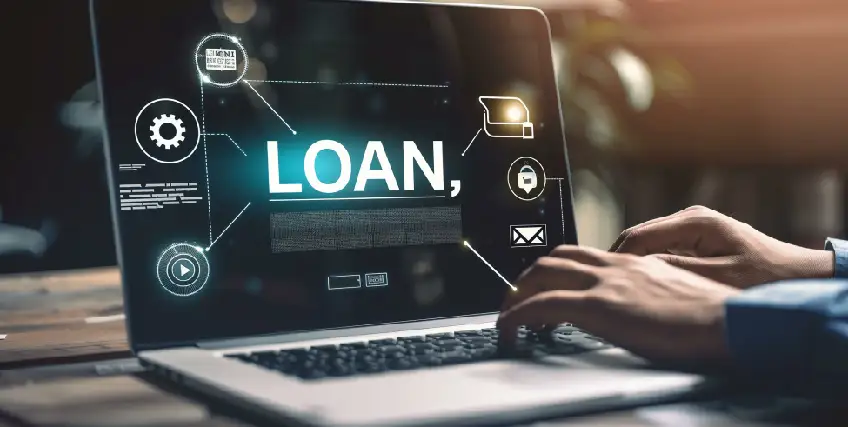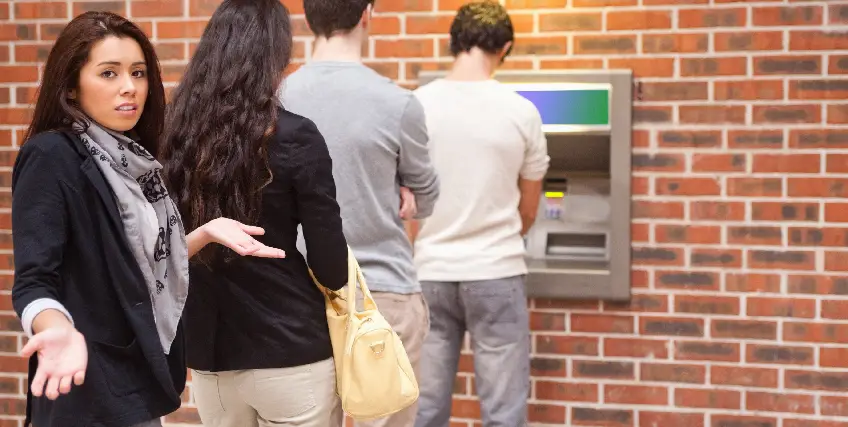Consequences of Not Paying Back an Unsecured Business Loan: What Borrowers Need to Know
February 24, 2025 | Last Updated on: February 24, 2025

Business loans provide entrepreneurs with the financing necessary to start, grow, or acquire a business and cover all of their related expenses along the way. Unsecured loans are a particularly popular option for business owners today, reaching a record market size of $4.75 trillion in 2024 with no signs of slowing. You can often find unsecured loans online or through traditional banks and credit unions.
Unsecured loans aren’t secured by any collateral, making them more enticing for borrowers and much riskier for lenders. Additionally, lenders may require a personal guarantee sometimes. You may find low rate personal loans, unsecured debt does tend to be offered at a higher rate than secured debt, in case you fail to pay and even default on the loan.
Just because a specific asset isn’t tied to a business’s unsecured loan, though, it doesn’t mean that defaulting on one of these loans wouldn’t be detrimental. Here’s a look at the financial (and legal) consequences of failing to repay an unsecured loan, and what personal and business borrowers need to know.
What Is an Unsecured Business Loan?
An unsecured loan is, as the name implies, a form of financing offered to business owners that is not secured by a collateral asset. These credit-based installment loans provide borrowers with a lump sum that they can use for a variety of expenses, whether they’re looking to start a new business, expand an existing business, refinance outstanding debt, or even acquire someone else’s business.
This type of loan may be offered by banks, credit unions, online lenders, and other financial institutions. Unlike secured loans, which are tied to a specific asset (like home equity values or heavy machinery), an unsecured loan offers much greater flexibility without a collateral requirement. Instead, these loans are based on the borrower’s financial eligibility, including their credit score, debt-to-income ratio, income, and — in the case of business loans — the business’s credit history and cash flow.
Unsecured loans may have a more demanding approval process than secured debt, often requiring excellent credit. They can be more beneficial than secured debt in many ways, though. For example, unsecured loans may offer faster access to cash, sometimes providing approval and funding as quickly as the same business day. Since no collateral is required, you also won’t have to tie up your cash or risk valuable assets.
On the business side, unsecured loans include products like term loans, business lines of credit, and merchant cash advances. These are comparable to unsecured personal loan products such as student loans, personal loans, home improvement loans, debt consolidation loans, personal lines of credit, and cash advances.
Consequences of Not Paying Back an Unsecured Loan
There are times when borrowers fall behind on their business loan payments and risk defaulting on the debt. This can be costly: Not only will you pay late fees, but there are costly and long-term impacts on your credit profile.
With a secured loan, the lender can seize whatever asset is tied to the debt, such as a car on an auto loan or a home on a mortgage loan. With unsecured debt, though, the consequences can be a little less direct.
Damage to your business credit score
Failing to repay your unsecured loan (business or personal) as agreed can and will impact your credit history. Most lenders report borrowers’ payment history and account details (such as the original loan amount, current balance, and monthly payment history) to one or more credit bureaus, usually after your payment is 30 days late or more. This information will stay on your personal and/or business credit report and follow you for multiple years, as it’s tied to your Social Security number and/or EIN.
This information and the resulting score will be used by potential lenders to gauge your creditworthiness when considering your loan application, determining your loan options, and even deciding which loan terms to offer you upon approval. If you have late or missed payments, high levels of debt, or even discharged loans that you failed to repay, you can expect a tough time getting credit approval the next time you want to borrow; easy unsecured loans will likely be a thing of the past.
You can also expect more limited loan options and repayment terms the lower your credit score is.
Higher interest rates and fees
Whether it’s a secured or unsecured loan or even a credit card, lower interest rates mean you’ll pay less in the end for borrowing those funds. However, defaulting on an unsecured loan or making late payments now will usually mean higher rates and fees both now and in the future if you ever need to borrow again.
Some lenders have penalty interest rates built into their loan disclosures, which kick in after you make payments later than agreed. Once these higher rates are applied to your unsecured loan or credit card debt, your remaining balance will cost you more to repay, even if future payments are made on time. You may also be charged late fees, which will add to your balance and compound what you owe.
The lower your business FICO — and if a personal guarantee is necessary, your personal FICO score — the higher the variable and fixed rates you’ll likely be offered on future loans. You might also be subject to origination fees and other upfront costs that more creditworthy borrowers could avoid, increasing your total loan pricing.
Collection efforts
After a few missed payments, lenders will typically call the debt and begin trying to collect what they can to recoup their losses. This usually starts with frequent phone calls and letters to see why you’ve missed payments and try to get you back on track. If that fails, the lender will take further steps.
The lender will usually repossess the asset if you have secured debt, like a car loan or home mortgage. With unsecured loans, though, there is no collateral asset to seize. Instead, they will begin reporting the negative account to the personal and/or business credit bureaus (depending on your loan). If reaching out to you doesn’t work, they may sell off the debt to collection agencies, which will then continue to pursue you.
In some cases, lenders may even take legal action against you, hoping to garnish your bank accounts or future wages to repay the balance. If they win the suit, they could potentially seize your checking account, business savings account, future tax returns, and other sources of funds.
How to Avoid Defaulting on an Unsecured Loan
Failing to repay an unsecured loan isn’t something most borrowers expect to encounter, but around 2% of all small businesses default on their unsecured loans. If the unexpected happens and you find yourself in this position, there are a few things you can do to avoid the worst impacts.
The biggest is to simply talk to your lender(s). You might be surprised by how willing lenders are to work with you, if you reach out and communicate. If you’re struggling to make payments, know you’re going to miss a payment, or already behind, giving your lender a call can open up options you didn’t know existed.
Some things lenders might be willing to do include:
- Offering forbearance until your financial hardship passes
- Adjusting your loan terms to put missed payments at the end of your repayment schedule
- Lowering monthly payments and extending your repayment period
- Temporarily reducing your interest rate
The worst your lender can do is say no. If you’re already behind or know you won’t be able to avoid falling behind, giving your lender a call may help you avoid default.
What to Do If You’ve Already Defaulted on an Unsecured Loan
If you’ve already failed to repay an unsecured loan (business or personal) and defaulted on the debt, you’re probably already seeing the effects on your credit. However, there are still some ways you can mitigate the damage.
Assess the situation to understand the debt
Take a deep breath and then dive into the account, so you can truly understand what you’re looking at and how you might be able to rectify the situation. This means evaluating the total amount you owe, including penalties and fees, and how much you’re still facing in interest charges. You can use a loan calculator, if needed.
Review your loan disclosure and any correspondence you have from your lender. This will outline your fees, penalty interest rates, and even the prepayment penalties imposed (if applicable) when you pay down the balance ahead of schedule. If the lender offers forbearance or deferment, look over the requirements and see if you qualify.
Your lender may have already outlined their default process, too, and what you can expect to happen from a legal standpoint.
Negotiate with the lender
Once you understand what you owe, what you can afford to pay, and what your lender might allow, it’s time to reach out to them. If you’re already behind on payments, you may be automatically routed to an account specialist who can help you navigate your options.
The lender may be able to help you:
- Request a repayment plan to get back on track
- Initiate loan forbearance or deferment
- Implement reduced loan terms
- Discuss opportunities for refinancing or consolidating the debt
There may be an application process involved with some of these options, and you might be asked to provide evidence of financial hardship (or even just the reason you fell behind).
Consider debt relief options
Rather than let unpaid unsecured debt ruin your business operations and/or personal finances, you can look into some debt relief options like bankruptcy or debt settlement. These are usually a last-case scenario and can still have negative impacts, so it’s important to research exactly what’s involved, which debts qualify, and how long these options will follow you and your business.
Final Thoughts
Unsecured loans aren’t attached to collateral assets, so lenders don’t have a specific item to repossess if the debt isn’t paid. Failing to pay back unsecured debt as promised can still be a costly decision, though, and the financial and credit impacts can follow you for years to come. It’s important to take a proactive approach to your financial management to stay on top of your accounts. If you find it difficult to continue paying your unsecured loans and other debts as agreed, be sure to reach out to your lender(s) early on. There may be options to help you stay in good standing even if you’re experiencing hardship!
FAQs on Not Paying Back an Unsecured Loan
Can a lender take me to court over an unpaid unsecured loan?
Lenders can absolutely file a lawsuit against you for unpaid debt, such as unsecured loans and credit card balances. If the lender wins in court, they could seize other assets such as savings accounts and future tax returns or even garnish your future wages to satisfy the debt.
Can I be forced to pay back unsecured debt?
While unsecured debt isn’t secured by a collateral asset — such as a car, heavy machinery, or real estate — you and/or your business are still required to repay it as promised. If you fail to repay an unsecured loan or other debt, the lender can take you to court to recoup their funds.
Will a lender garnish my wages over unpaid unsecured debt?
If a lender receives a judgment against you in court for unpaid unsecured loans or other debt, your wages may be garnished. A court could also demand that your future tax returns, current savings accounts, or other select assets be directed to the lender to satisfy your unpaid debt.
How does unsecured debt affect my credit if I don’t pay?
Failing to pay any debt can wreck your personal and business credit. Lenders will typically report your payment history, balance, and other key details to the credit bureaus, which will maintain a credit report attached to your SSN or EIN. This report will be used to calculate your credit score and will also be referenced when you apply for a new loan, try to purchase certain insurance policies, and more.
Can lenders seize my assets over an unsecured loan?
Lenders can’t directly seize assets that aren’t used as collateral on unsecured loans. However, they can take you to court for the unpaid debt. If they win a judgment against you, a judge could award them certain assets or future earnings to satisfy the debt.




